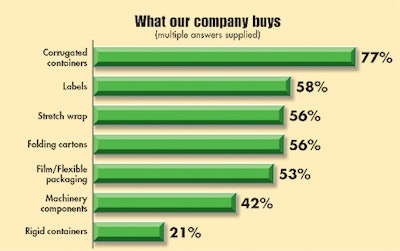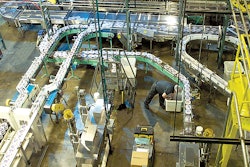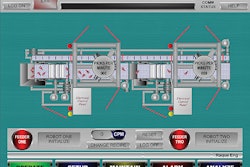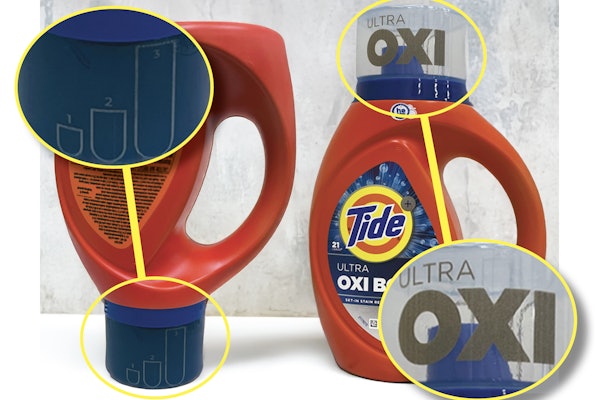
Approximately 220 respondents answered a series of questions on online reverse auctions.
Although a strong majority of manufacturers do not use reverse auctions for buying packaging (see chart above), those companies that do use them buy a variety of materials.
As expected, the personal opinions were overwhelmingly negative. A packaging engineer with a very large medical device maker in the Mountain States was adamant: “I don’t like them. They focus solely on price and not on quality or other factors that are not always included in the standard cost, such as shipping. They do not foster good supplier loyalty or relationships.”
An engineer with an industrial products company in the Southeast noted, “I’m not sure that the hidden costs (plates, dies, engineering hours) are factored in properly.” Another industrial products company’s marketing representative said: “We’ve tried them and just don’t like them.” A manager for a Canadian beverage producer described them this way: “They’re generally related to cost and not service. Service is very often more important than minor cost savings.”
An engineer for a food processor in the Southwest summed up many comments. “Reverse auctions destroy the strong relationships you build with suppliers. Not all suppliers understand your company’s business, and may not provide the best product or service.”
Other respondents indicated reverse auctions may work for some packaging. A purchasing manager for a large pharmaceutical company called them “A valuable tool, which makes sense for certain commodities, and no sense for other products.” A buyer for a different pharmaceutical company noted “A lot of upfront work is needed.”
The purchasing executive for an international office products supplier said: “Reverse auctions are more appropriate for catalog items.”
But reverse auctions have supporters as well. An engineer for a large household chemicals maker said, “It works to drive down costs.” An engineer for a mid-sized frozen foods company said: “It’s a good idea. It makes the process more competitive and convenient.”
One of the more balanced comments came from a packaging manager with a tobacco products maker: “They have a tendency to place business with a low-price supplier. But your actual total costs may increase due to problems encountered in the supply chain.”


























